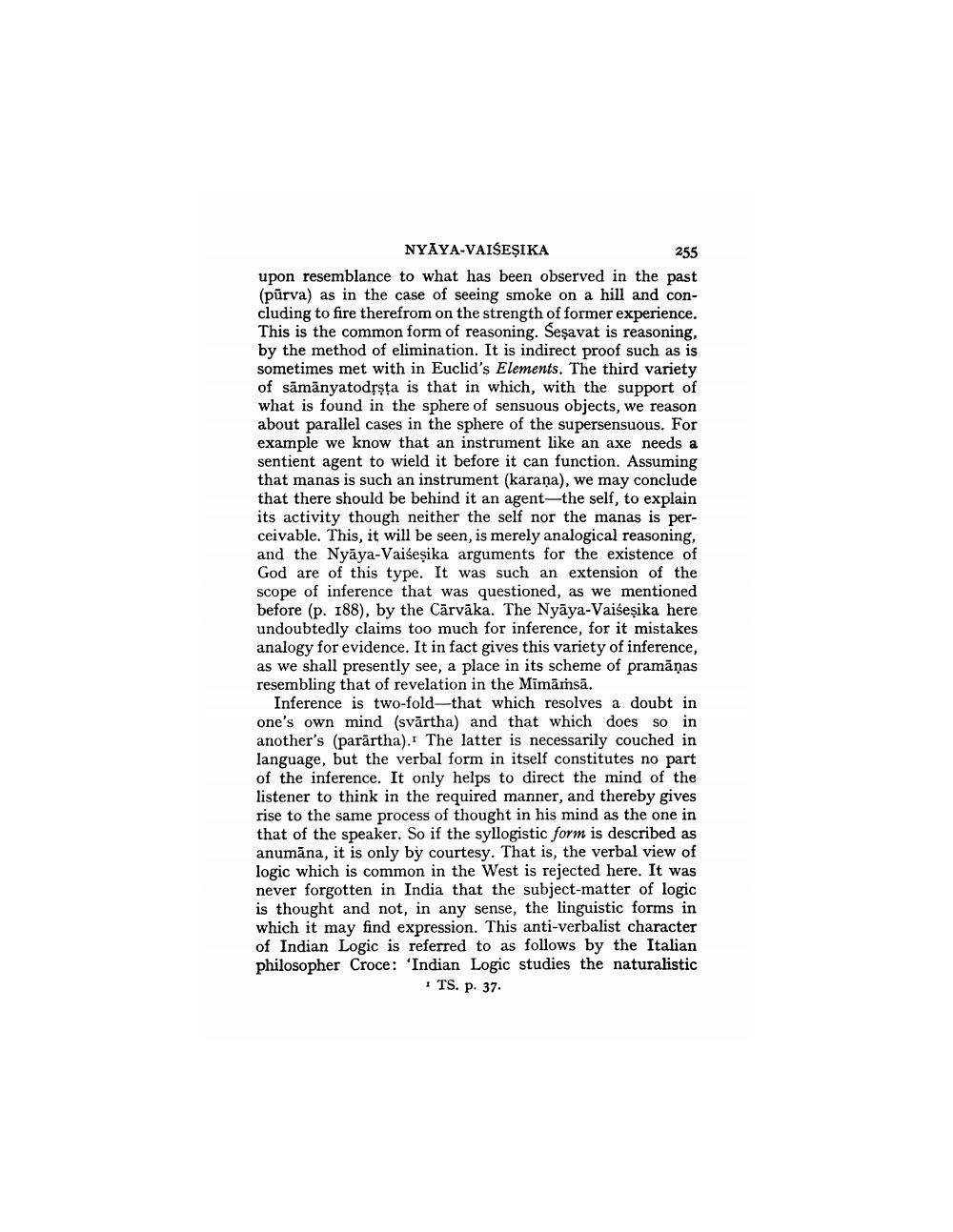________________
NYAYA-VAISESIKA
255 upon resemblance to what has been observed in the past (pūrva) as in the case of seeing smoke on a hill and concluding to fire therefrom on the strength of former experience. This is the common form of reasoning. Sesavat is reasoning, by the method of elimination. It is indirect proof such as is sometimes met with in Euclid's Elements. The third variety of sämānyatodsşta is that in which, with the support of what is found in the sphere of sensuous objects, we reason about parallel cases in the sphere of the supersensuous. For example we know that an instrument like an axe needs a sentient agent to wield it before it can function. Assuming that manas is such an instrument (karana), we may conclude that there should be behind it an agent--the self, to explain its activity though neither the self nor the manas is perceivable. This, it will be seen, is merely analogical reasoning, and the Nyāya-Vaiseșika arguments for the existence of God are of this type. It was such an extension of the scope of inference that was questioned, as we mentioned before (p. 188), by the Cārvāka. The Nyāya-Vaiseșika here undoubtedly claims too much for inference, for it mistakes analogy for evidence. It in fact gives this variety of inference, as we shall presently see, a place in its scheme of pramāņas resembling that of revelation in the Mimāmsā.
Inference is two-fold—that which resolves a doubt in one's own mind (svārtha) and that which does so in another's (parārtha). The latter is necessarily couched in language, but the verbal form in itself constitutes no part of the inference. It only helps to direct the mind of the listener to think in the required manner, and thereby gives rise to the same process of thought in his mind as the one in that of the speaker. So if the syllogistic form is described as anumāna, it is only by courtesy. That is, the verbal view of logic which is common in the West is rejected here. It was never forgotten in India that the subject-matter of logic is thought and not, in any sense, the linguistic forms in which it may find expression. This anti-verbalist character of Indian Logic is referred to as follows by the Italian philosopher Croce: 'Indian Logic studies the naturalistic
TS. p. 37




